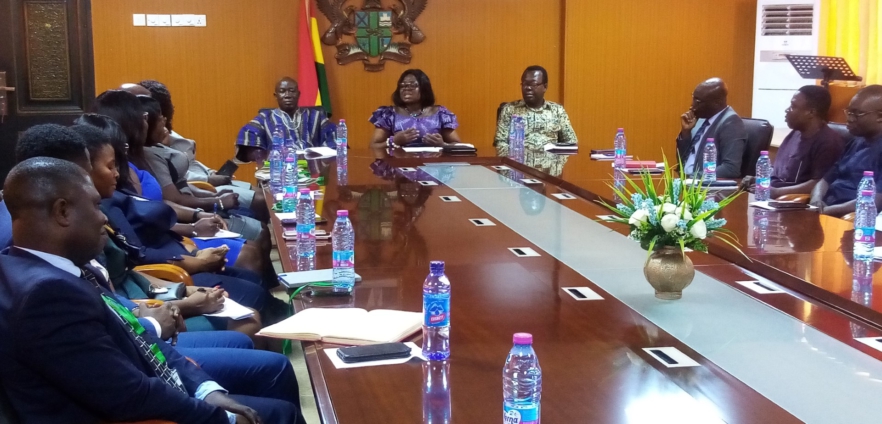The heads of banking institutions in the Bono Region have called on the Government to be proactive enough and flush out money exchangers in the ‘black market’ for the Ghana cedi to regain its strength.
They observed that the illegal money exchange business was flourishing in Sunyani, the regional capital, and thereby putting undue pressure on the cedi, saying, because their exchange rates were high, they had high patronage from the public.
“I think the Government must do more to restrict the activities of the black marketers because their illegal businesses have a huge devastating toll on the banking business,” Mrs. Gloria Mensah Atakora, the Bono Regional Manager, GCB Bank PLC stated.
The Bank Managers made the call when they interacted with Madam Justina Owusu-Banahene, the Bono Regional Minister in a meeting in Sunyani.
Mr Charles Eshun, the Bono Regional Manager of the Agriculture Development Bank (ADB), also advised the public to desist from exchanging foreign currencies in the black market to support government efforts to strengthen the Ghana cedi.
The Bank Managers also called on the National Identification Authority (NIA) to be expeditious in the issuance of the Ghana cards to the public, particularly Ghanaian residents abroad.
“Because they find it difficult to access the Ghana card, many Ghanaians who returned home from abroad are unable to open bank accounts and most of them also patronise the activities of the black marketers,” Mr Foster Frimpong, the Bono Regional Manager of the Zenith Bank stated.
They also appealed to the Regional Security Council to intervene and help increase Police presence at the Sunyani central business district (CBD) where most of the major banks were situated to enhance security in the enclave.
On her part, Madam Owusu-Banahene commended the managers for their frank discussions and assured that the Bono Regional Coordinating Council would also work hard in tackling some of the challenges impeding their operations in the region.
The Regional Minister called on the banks to open cash outlets in some of the major rural communities in the region to serve the rural population.
Madam Owusu-Banahene indicated that about 60 per cent of the regional population were farmers spread in the local communities, hence the need for the banks to extend their services to them too.
Meanwhile, activities of the illegal money exchangers are very common and rife, as several ‘black marketers,’ mostly nationals from Niger and Burkina Faso are dotted around corners of the CBD.
They transact their illegal businesses in the open as they approached visitors in the enclave for foreign currency exchange, with emphasis on the Euro and US dollar.
Latest Stories
-
Maven communications honours 41 leading businesses at 2025 Ghana Business League Awards
31 minutes -
APSU USA endorses Catholic Church’s renewed role in educational management
32 minutes -
The New Force issues apology over assault involving security guard
2 hours -
Colombia presidential hopeful shot in head at rally
2 hours -
Rwanda pulls out of regional bloc over DR Congo row
2 hours -
5 motorbikes, fufu pounding machine destroyed as fire guts mechanic shop at Kintampo
2 hours -
Suspect who attacked JoyNews’ Latif Iddrisu during Wontumi protest arrested
3 hours -
Gifty Anti honoured as Impactful Female Celebrity of the Year at inaugural Ghana Celebrity Impact Awards
3 hours -
Ghana Hajj Board confirms death of seven pilgrims in 2025 pilgrimage
6 hours -
Both governments are responsible for contributing to the country’s energy insecurity through financial debt
6 hours -
Israel is accused of the gravest war crimes – how governments respond could haunt them for years to come
8 hours -
Liberia’s ex-speaker charged with arson over parliament fire
8 hours -
Help protect oceans for sustainable future – Dr. Agyekumhene
9 hours -
Portugal vs Spain Nations League final preview
9 hours -
Trump-Musk row fuels ‘biggest crisis ever’ at Nasa
10 hours

